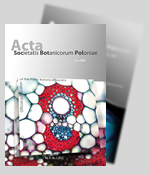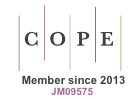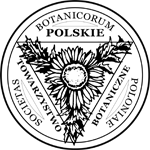Abstract
The objects of this research were the antheridial filament cells of Chara vulgaris which after 5-day mitodepressing treatment of the darkness reactivated mitosis (without light stimulation) in the result of the physiological state evocing the initiation of spermiogenesis in the antheridium. The course of these divisions was observed in relation to control cells cultivated in the natural photoperiod L:D = 14:10. It was shown that the passage of dark-arrested cells from early G2 (VII stage) to the early prophase in the cells linked to the base of filaments by plasmodesmata with spermatids initiating spermiogenesis, resembles the prematuraly condensed chromosomes (PCC). In this way a by-pass of the cells in the stage VII to early prophase occurs without reconstruction of granular components of nucleoli and with condensed stage of mitochondria characterising the dark-arrested cells. In opposition to this phenomenon in the control cell cycle and in light-induced reactivation of mitosis in the dark-arrested cells, initiation of the prophase follows the series of changes of the nuclear ultrastructure (VIII stage - decondensation of chromatin, IX and X stages nuclei with reticulate chromatin). At the early prophase, irrespective of the physiological conditions, the electron-transparent space appears between nuclear envelope and the chromatin as the effect of solublisation of lamins. The fine fibrils pass this space and link chromatin to the inner nuclear membrane.
Keywords
Chara vulgaris; antheridia; PCC-like mitosis; spermiogenesis; darkness







